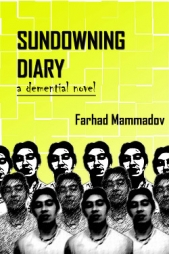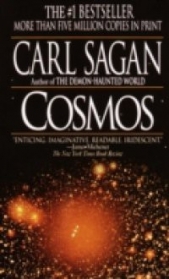[New Sun 04] The Citadel of the Autarch
![[New Sun 04] The Citadel of the Autarch](/uploads/posts/books/no-cover.jpg)
[New Sun 04] The Citadel of the Autarch читать книгу онлайн
Внимание! Книга может содержать контент только для совершеннолетних. Для несовершеннолетних чтение данного контента СТРОГО ЗАПРЕЩЕНО! Если в книге присутствует наличие пропаганды ЛГБТ и другого, запрещенного контента - просьба написать на почту [email protected] для удаления материала
In the space of a heartbeat it was over. The leaves that had swirled about us like snow fell to earth.
Guasacht shouted and Erblon sounded the graisle and brandished our flag. I got the piebald under control and cantered from one destrier to another, taking them by the nostrils until their riders could manage them again.
I rescued Daria, who I had not known was in the column, in this way. She looked very pretty and boyish dressed as a trooper, with a contus, and a slender sabre at either side of her saddle horn. I could not help thinking when I saw her of how other women I had known would appear in the same situation: Thea a theatrical warrior maid, beautiful and dramatic but essentially the figure of a figurehead; Thecla—how part of myself—a vengeful mimalone brandishing poisoned weapons; Agia astride a slender-legged sorrel, wearing a cuirass moulded to her figure, while her hair, plaited with bowstrings, flew wild in the wind; Jolenta a floriate queen in armour spikey with thorns, her big breasts and fleshy thighs absurd at any gait faster than a walk, smiling dreamily at each halt and attempting to recline in the saddle; Dorcas a naiad riding, lifted momentarily like a fountain flashing with sunshine; Valeria, perhaps, an aristocratic Daria.
I had supposed, when I saw our people scatter, that it would be impossible to reassemble the column; but within a few moments of the time the pentadactyl air-strider had passed over us, we were together again. We galloped for a league or more—mostly, I suspect, to dissipate some of the nervous energy of our destriers—then halted by a brook and gave them just as much water as would wet their mouths without making them sluggish. When I had fought the piebald back from the bank, I rode to a clearing from which I could watch the sky. Soon Guasacht trotted over and asked me jocularly, “You looking for another one?”
I nodded and told him 1 had never seen such craft before.
“You wouldn’t have, unless you’ve been close to the front. They’d never come back if they tried to go down south.”
“Soldiers like us wouldn’t stop them.”
He grew suddenly serious, his tiny eyes mere slits in the sun-browned flesh. “No. But plucky lads can stop their raiding parties. The guns and air-galleys can’t do that.”
The piebald stirred and stamped with impatience. I said, “I come from a part of the city you’ve probably never heard of, the Citadel. There are guns there that look out over the whole quarter, but I’ve never known them to be fired except ceremonially.” Still staring at the sky, I thought of the wheeling pentadactyls over Nessus, and a thousand blasts, issuing not just from the Barbican and the Great Keep, but from all the towers; and I wondered with what weapons the pentadactyls would reply.
“Come along,” Guasacht said. “I know it’s a temptation to keep a lookout for them, but it doesn’t do any good.”
I followed him back to the brook, where Erblon was lining up the column. “They didn’t even fire at us. They must surely have guns in those fliers.”
“We’re pretty small fish.” I could see that Guasacht wanted me to rejoin the column, though he hesitated to order me to do so directly.
For my part, I could feel fear grip me like a spectre, strongest about my legs, but lifting cold tentacles into my bowels, touching my heart. I wanted to be silent, but I could not stop talking. “When we go onto the field of battle—” (I think I imagined this field like the shaven lawn of the Sanguinary Field, where I had fought Agilus.)
Guasacht laughed. “When we go into the fight, our gunners would be delighted to see them out after us.” Before I understood what he was about to do, he struck the piebald with the flat of his blade and sent me cantering off.
Fear is like those diseases that disfigure the face with running sores. One becomes almost more afraid of their being seen than of their source, and comes to feel not only disgraced but defiled. When the piebald began to slow, I dug my heels into him and fell into line at the very end of the column.
Only a short time before I had been on the point of replacing Erblon; now I was demoted, hot by Guasacht but by myself, to the lowest position. And yet when I had helped reassemble the scattered troopers, the thing I feared had already passed; so that the entire drama of my elevation had been played out after it had ended in debasement. It was as though one were to see a young man idling in a public garden stabbed—then watch him, all unknowing, strike up an acquaintance with the voluptuous wife of his murderer, and at last, having ascertained, as he thought, that her husband was in another part of the city, clasp her to him until she cried out from the pain of the dagger’s hilt protruding from his chest.
When the column lurched forward, Daria detached herself from it and waited until she could fall in beside me. “You’re afraid,” she said. It was not a question but a statement, and not a reproach but almost a password, like the ridiculous phrases I had learned at Vodalus’s banquet.
“Yes. You’re about to remind me of the boast I made to you in the forest. I can only say that I did not know it to be an empty one when I made it. A certain wise man once tried to teach me that even after a client has mastered one excruciation, so that he can put it from his mind even while he screams and writhes, another quite different excruciation may be as effectual in breaking his will as in breaking a child’s. I learned to explain all this when he asked me but never until now to apply it, as I should, to my own life. But if I am the client here, who is the torturer?”
“We’re all more or less afraid,” she said. “That was whyyes, I saw it—Guasacht sent you away. It was to keep you from making his own feeling worse. If it were worse, he wouldn’t be able to lead. When the time comes, you’ll do what you have to, and that’s all any of them do.”
“Hadn’t we better go?” I asked. The end of the column was moving off in that surging way the tail of a long line always does.
“If we go now, a lot of them will know we’re at the rear because we’re afraid. If we wait just a little while longer, many of those who saw you talking with Guasacht will think he sent you back here to speed up stragglers, and that I came back to be with you.”
“All right,” I said.
Her hand, damp with sweat and as thin as Dorcas’s, came sliding into mine.
Until that moment, I had been certain she had fought before. Now I asked her, “Is this your first time too?”
“I can fight better than most of them,” she declared, “and I’m sick of being called a whore.”
Together, we trotted after the column.
XXII. Battle
I SAW THEM first as a scattering of coloured dots on the farther side of the wide valley, skirmishers who seemed to move and mix, as bubbles do that dance upon the surface of a mug of cider. We were trotting through a grove of shattered trees whose white and naked wood was like the living bone of a compound fracture. Our column was much larger now, perhaps the whole of the irregular contarii. It had been under fire, in a more or less dilatory way, for about half a watch. Some troopers had been wounded (one, near me, quite badly) and several killed. The wounded cared for themselves and tried to help each other—if there were medical attendants for us they were too far behind us for me to be conscious of them.
From time to time we passed corpses among the trees; usually these were in little clusters of two or three, sometimes they were merely solitary individuals. I saw one who had contrived in dying to hook the collar of his brigandine jacket to a splinter protruding from one of the broken trunks, and I was struck by the horror of his situation, his being dead and yet unable to rest, and then by the thought that such was the plight of all those thousands of trees, trees that had been killed but could not fall.























